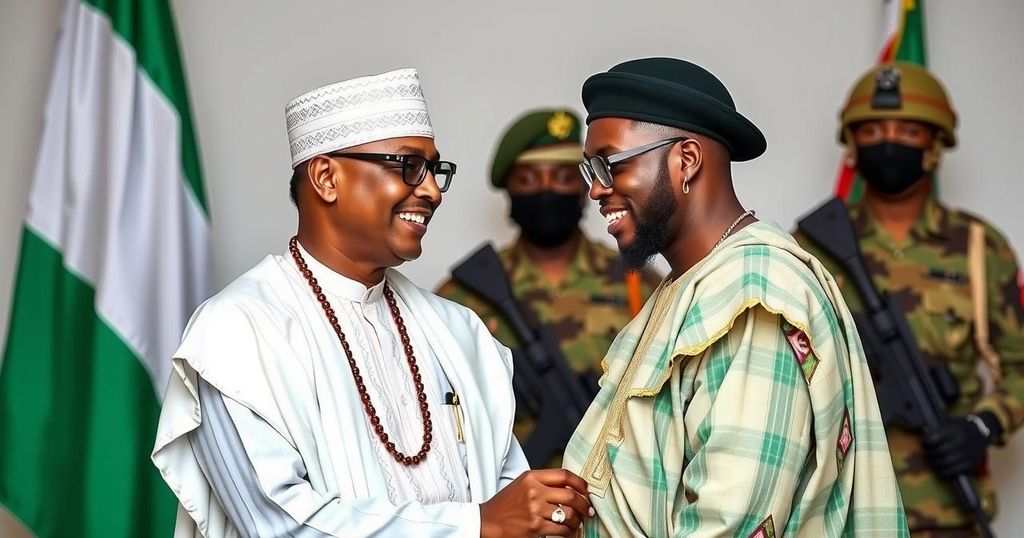The Strategic Necessity of Nigeria’s Foreign Diplomacy Amid Security Challenges

Professor Eghosa Osaghae discusses the importance of President Tinubu and Vice President Shettima’s foreign trips in attracting investment amid Nigeria’s economic hardships. He underscores the need for international support in combating local security challenges, particularly terrorism and banditry. Osaghae emphasizes Nigeria’s strategic role in the Sahel and the necessity for regional cooperation, while also exploring the implications of Nigeria’s relationship with BRICS for its global standing.
In an interview, Professor Eghosa Osaghae, the Director-General of the Nigerian Institute of International Affairs, discusses the implications of foreign trips undertaken by President Bola Tinubu and Vice President Kashim Shettima, particularly amid economic hardship in Nigeria. Professor Osaghae emphasizes that such diplomatic missions are essential for attracting foreign investment and fostering economic growth. He underscores the importance of these travels against the backdrop of Nigeria’s security challenges, which necessitate international collaboration to effectively combat issues like terrorism and banditry. He argues that in order to address these complex security issues, Nigeria must seek external support and technological investments that can aid in the fight against insecurity. Furthermore, he comments on the geopolitical dynamics in the Sahel region, highlighting the necessity for Nigeria, Niger, and neighboring countries to maintain cooperative relations despite recent tensions. The professor expresses optimism regarding the ability of ECOWAS to mediate the situation and preserve strategic ties between Nigeria and its neighbors. He also notes that Nigeria’s potential engagement with BRICS could create new economic opportunities without necessarily jeopardizing its relations with the United States.
The discussion centers on Nigeria’s ongoing efforts to enhance its international standing and secure foreign investment amidst domestic security challenges. The foreign trips of its leaders are seen as critical for fostering economic diplomacy. Additionally, regional dynamics, particularly in the Sahel, complicate Nigeria’s security situation. The recent political changes in neighboring countries, alongside Nigeria’s chairmanship in ECOWAS, add layers of political context that influence bilateral relations. The evolving relationship with BRICS also reflects Nigeria’s desire for alternative partnerships that provide economic advantages without sacrificing Western relations.
Professor Osaghae’s insights reflect a nuanced understanding of Nigeria’s position on the international stage as it navigates critical security and economic challenges. He emphasizes the importance of foreign investment, regional cooperation, and maintaining robust diplomatic relations despite geopolitical tensions. As Nigeria seeks to attract international support, it must balance its engagements carefully to enhance national security and economic prosperity. The role of ECOWAS and the potential benefits of BRICS membership could provide Nigeria with significant opportunities moving forward.
Original Source: punchng.com








